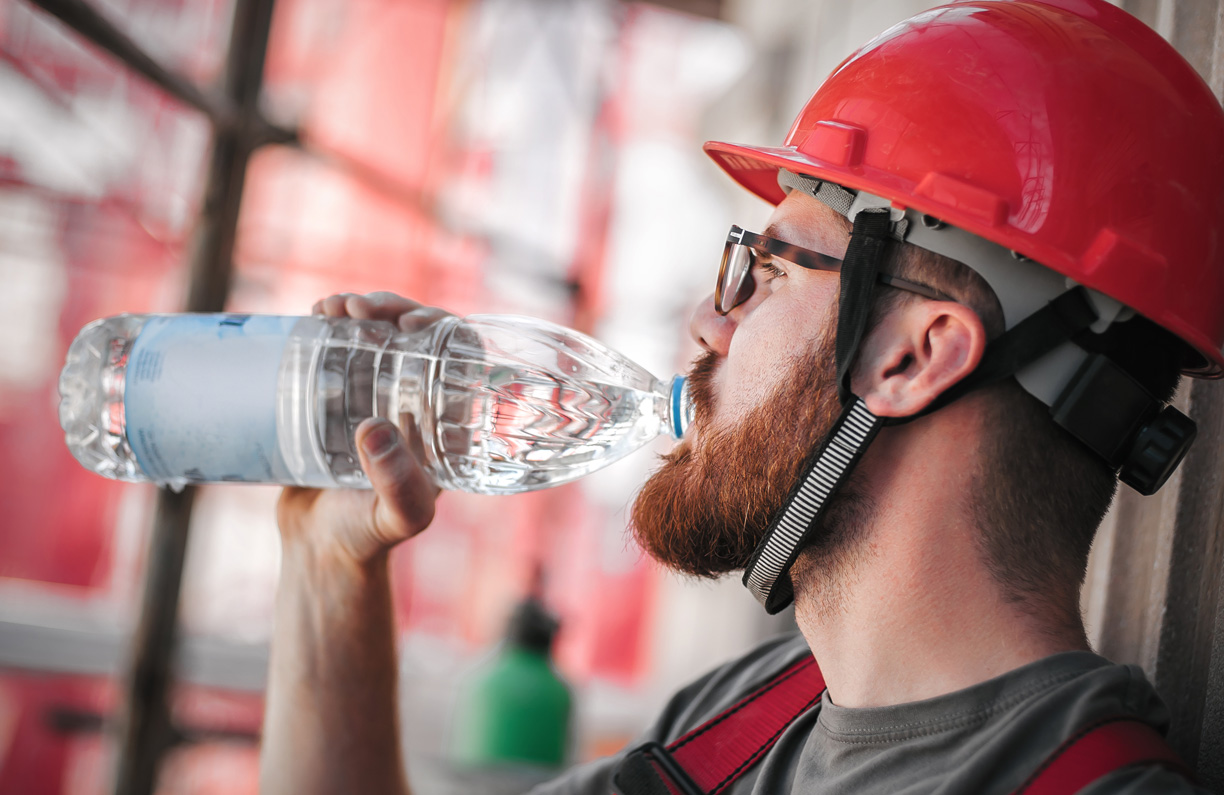Working under the Florida sun is no small feat, especially for licensed roofers and HVAC technicians. With temperatures regularly soaring into the 90s and humidity levels that make the heat even more intense, outdoor trade work during the summer months can pose serious health risks. One of the most common and dangerous hazards is heat stress.
At BrightFund, we’ve been protecting Florida’s licensed contractors for 70 years. Our mission goes beyond workers compensation coverage, we’re here to keep our members informed, protected, and prepared. Whether you’re running a crew or climbing the ladder yourself, here’s what you need to know about heat stress prevention to stay safe and compliant this summer.
What Is Heat Stress?
Heat stress occurs when the body cannot cool itself efficiently, leading to a range of conditions like heat exhaustion, heat cramps, and heat stroke. For roofers and HVAC techs, who often work in direct sunlight, on high surfaces, or in enclosed attic spaces, the risk is even greater.
Common symptoms include:
- Excessive sweating
- Dizziness or fainting
- Muscle cramps
- Nausea or vomiting
- Confusion or disorientation
If left unaddressed, heat stress can escalate quickly, sometimes becoming life-threatening. That’s why OSHA and industry experts stress the importance of prevention and early intervention.
Why Florida Roofers & HVAC Techs Are Especially At Risk
Roofers and HVAC professionals often work in extreme conditions that amplify the effects of heat:
- Direct exposure to sunlight on rooftops or blacktop
- Reflective surfaces that increase radiant heat
- Confined, poorly ventilated spaces like attics or crawlspaces
- Heavy personal protective equipment (PPE) that limits natural cooling
In Florida, the combination of high temperatures and high humidity slows down the body’s natural cooling system (sweating), making heat stress even more likely. According to the National Weather Service, Florida experiences an average of 25-45 days per year with a heat index over 100°F and that number is rising.

OSHA Guidelines for Heat Safety
To reduce the risk of heat-related illnesses, OSHA has outlined key best practices, particularly relevant for employers in construction and skilled trades:
1. Hydration is Non-Negotiable
- Provide cool, clean water onsite
- Encourage workers to drink at least one cup every 15–20 minutes
- Avoid drinks with caffeine or sugar
2. Mandatory Breaks in Shade
- Provide shaded or air-conditioned rest areas
- Schedule frequent cool-down breaks, especially during peak heat hours (12–3 p.m.)
- Rotate tasks to limit time spent in the sun
3. Acclimatization Periods
- Gradually increase workload over 7–14 days for new or returning workers
- Allow the body to adjust to heat exposure
4. Heat Illness Training
- Educate teams on recognizing early signs of heat stress
- Create an emergency plan for heat-related incidents
- Assign a supervisor or lead to monitor team well-being
For a detailed breakdown of OSHA’s heat protection measures, visit: OSHA Heat Illness Prevention.
Smart Scheduling & Site Safety Tips
BrightFund encourages our members to take proactive steps in heat safety because the right planning can make all the difference.
- Start early: Plan outdoor jobs for early morning when temps are lower
- Use the buddy system: Encourage team members to look out for signs of heat stress in each other
- Dress appropriately: Lightweight, breathable, and light-colored clothing helps regulate body temperature
Monitor the heat index: Use apps like OSHA-NIOSH Heat Safety Tool to track real-time risk levels
BrightFund's Commitment to Contractor Safety
As a self-insured fund built for tradespeople, by tradespeople, BrightFund knows what it takes to keep Florida crews safe and productive. We offer:
- Customized safety programs for high-risk trades like roofing and HVAC
- Onsite safety consultations
- Access to heat safety resources tailored for Florida contractors
- Proactive claims support to ensure faster recovery and fewer disruptions
We believe that workers compensation is more than a policy, it’s a partnership. When you put safety first, you protect your people, your business, and your bottom line.
Stay Cool, Stay Safe
Heat stress isn’t just a summer concern, it’s a jobsite reality for Florida’s trade contractors. Whether you’re managing a roofing crew or servicing attic units mid-July, don’t underestimate the dangers of extreme heat. Hydration, education, and a well-prepared team can prevent serious injuries and keep your projects running smoothly.
